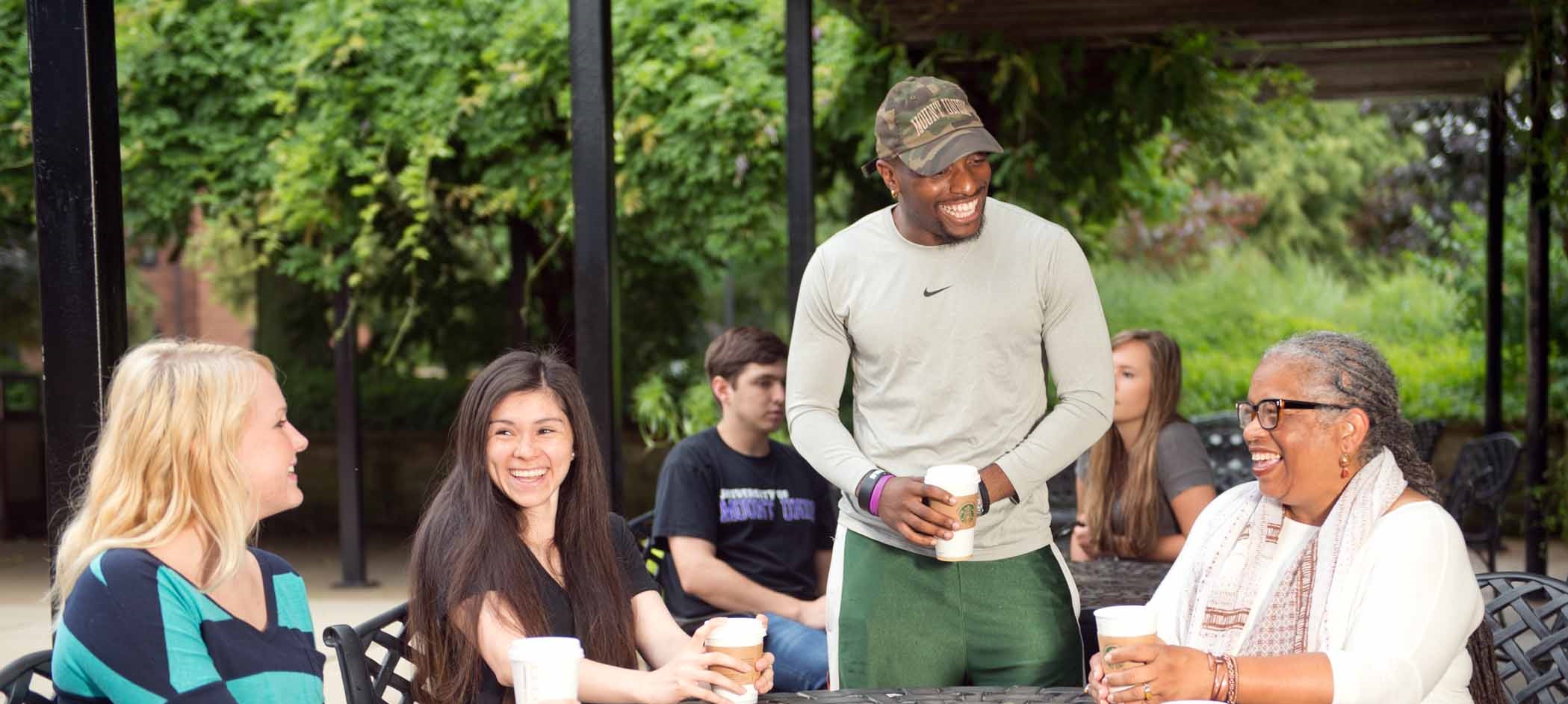1:30-2:30 p.m., Breakout Session 3
Community Track
DEI in Healthcare Coverage
Room 107, Giese Center for the Performing Arts
Josey Johnson, Student, Otterbein University
Healthcare coverage has systemic indifferences among different groups, sometimes marginalized, that plague healthcare coverage for patients, limiting their treatment and provider access.
The Sixth Level: Using the Power of Women's Psychology to Lead Change
Room 114, Giese Center for the Performing Arts
Elaine Russell Reolfi, CEO, CommQuest Services
Many organizations have good intentions to drive positive change and build an inclusive workplace and community but overcoming obstacles and aligning people can be difficult. The Sixth Level of Leadership is a model derived from the narratives of 16 women (including the presenter) who practice Self-in-Relation theory, which defines the psychology of women as oriented to connection and care. This model supersedes Maslow’s fifth level, self-actualization, which is based on men’s psychology and is consequently incomplete. Its four differentiators – mutuality, ingenuity, justness, and intrinsic motivation – redesign leadership and promote collective interest to create healthy social dynamics that, in turn, optimize results.
Educator Track
Courageous Conversations to Honor Diversity of Thought and Experiences
Room 109, Giese Center for the Performing Arts
Nyree Wilkerson, Diversity, Equity, and Inclusion Coordinator, Hudson City Schools
Cindy Neroni, Intervention Specialist, Hudson City Schools
This interactive session will demonstrate an adaptation of the Courageous Conversation practice Hudson City Schools uses to meet our mission of maximizing the intellectual, physical, social, and emotional development of each child in a safe, nurturing, and diverse environment. Teaching staff have received professional development in several areas related to the successful implementation of courageous conversations, including building community agreements, the why and how of proactive circles built around specific themes, and specific strategies for successful classroom implementation. Through experiential learning, participants will leave the session with practical strategies for building inclusivity by honoring diversity of thought and experience.
Exclusively INCLUSIVE or Inclusively EXCLUSIVE? The Oxymoronic Nature of American Schools
Room 180, Giese Center for the Performing Arts
Peter Schneller, Emeritus Professor, University of Mount Union
Darese Sparkman, Student, University of Mount Union
Andrew Datz, Student, University of Mount Union
This presentation will offer an interactive discussion of American schools for pre-K to 12th grade, as well as undergraduate and graduate school. Areas for consideration include academics, curriculum, students with exceptionalities, athletics, classroom activities, disciplinary concerns, school-to-prison pipeline, social activities, school culture, admissions, zero tolerance, expulsions, Greek life, extracurriculars, gifted/talented programs, microaggressions, DEI, etc. The focus of the conversation will be “Can our schools be truly inclusive?” Come equipped to discuss difficult issues and questions such as, “Is grouping students by age inclusive?” “How could school sports include all who want to participate?” “How could grades be considered inclusive rather than divisive?”
We all Want to Thrive: Cultivating Communities of Safety and Belonging
Gallaher Theatre, Giese Center for the Performing Arts
Erica Booker, Founder, Disrupter University
This session, a continuation of the morning's keynote address, focuses on creating inclusive communities where every individual feels safe, valued, and empowered. Participants will embark on a transformative journey of culturally responsive practices, leveraging storytelling and active listening to deepen connections with themselves, their teams, and their communities. The session emphasizes culturally responsive practices and equity, providing actionable strategies for fostering environments that prioritize belonging. Attendees will leave with insights into building stronger, more supportive communities and the tools needed to drive meaningful change in today’s diverse world.


